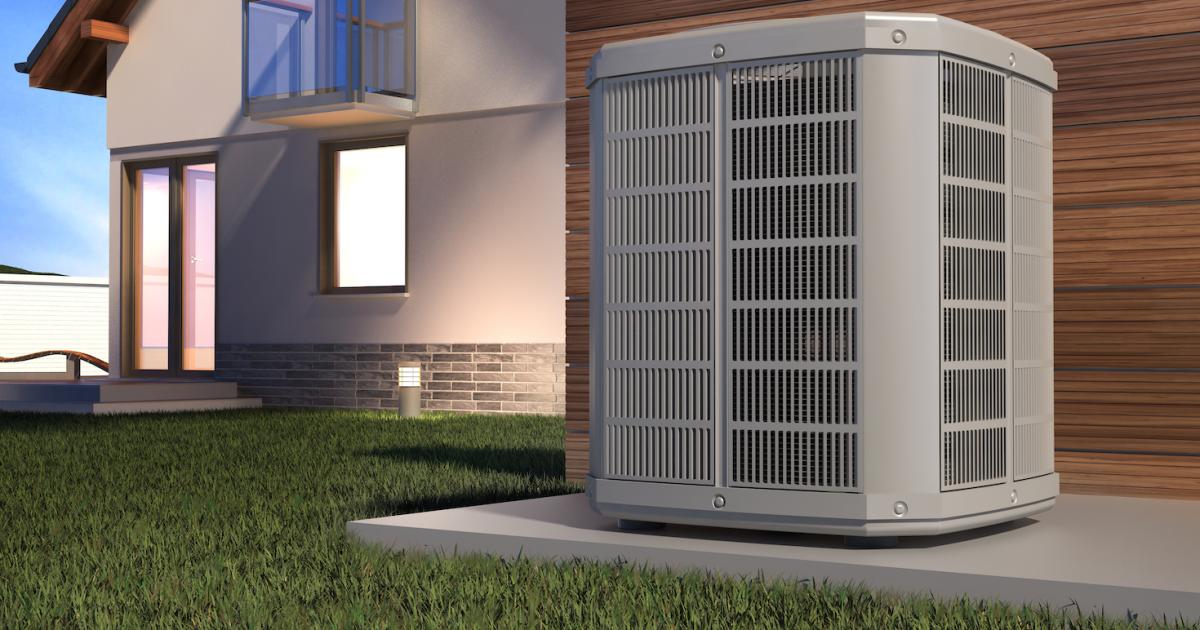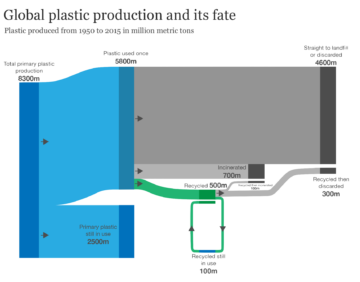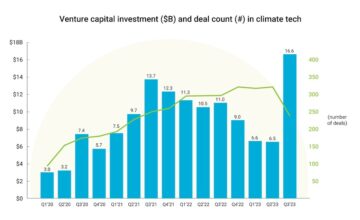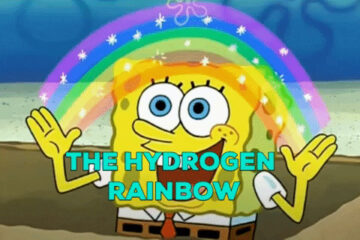
Heat pumps could be as much as two or three times more efficient than oil and gas-based fossil heating systems in cold and sub-zero temperatures, making them suitable and cost-effective for the vast majority of homes in Europe, a new study has found.
The new research published by Oxford University and the Szabályozási segítségnyújtási projekt (RAP) used data from seven field studies across North America, Asia, and Europe to assess how well heat pumps confirm in sub-zero temperatures.
Critics have alleged that heat pumps can struggle to adequately heat homes in low temperatures, but the analysis of real world installations found that heat pumps perform “significantly better” than their fossil-fuel base competitors, even in temperatures approaching minus 30 degrees Celsius.
As such, the study concludes that standard heat pumps are suitable for almost all European homes, highlighting that the real world performance of heat pumps that have been installed correctly is contrary to previous reports which have called into question their performance in cold weather.
The authors of the report note that while heat pump uptake rose by 11 percent in 2022, a combination of public skepticism and insufficient government support means that deployment rates in many countries are lagging behind the levels needed to decarbonize the heating sector and ensure net-zero emission targets are met.
The report therefore calls for a renewed effort from industry and policymakers to promote the efficiency and effectiveness of heat pumps even in cold weather, warning that the amount of heat supplied by heat pumps in the EU will need to at least triple if the bloc is to meet its 2030 climate and energy targets.
“This research should instill confidence in policymakers to provide the right frameworks to roll out heat pumps as rapidly as possible,” said Jan Rosenow, director of European Programmes at RAP. “The UK has set ambitious targets for heat pump rollout. What is missing is the policy framework to deliver on this ambition. This includes reforming taxes and levies as well as setting clear phase-out dates for fossil fuel heating.”
As part of their research, the authors analyzed the datasets collected from field studies across climatic zones, heat pump models and heat pump configurations to find the average coefficient of performance — or how well a device transforms one unit of energy into useable heat — in relation to the average outside temperature.
The study found the standard heat pumps demonstrated efficient heating during cold winters where temperatures rarely fall below minus 10C — which it noted is the case for most of Europe.
The analysis showed that during freezing temperatures, the coefficient performance remained “well above” 2 in all cases, which means these air-source heat pumps operated at more than twice the efficiency of combustion or resistive electric heating technology.
Richard Lowes, senior associate, RAP, said the evidence that heat pumps could perform effectively at such low temperatures suggests “they may be more widely applicable than even the boldest heat pump proponents assume.”
Overall, the report found that heat pump efficiency is around two to three times higher than fossil fuel combustion heating systems when operating below 0C.
The study also found that cold-climate air-source heat pumps — or heat pumps specifically designed for lower temperatures — can achieve coefficients of performance above 1.5 even in temperatures approaching minus 30C.
As such, the study concludes that heat pumps are a “cost-effective provider of heat even throughout the typical European winter.”
“This research reveals that there is no technical reason why heat pumps cannot be widely used in every European country,” said Duncan Gibb, senior advisor, RAP. “This new finding is accompanied by past surveys that show increasing comfort for four out of five households after switching to a heat pump.”
- SEO által támogatott tartalom és PR terjesztés. Erősödjön még ma.
- PlatoData.Network Vertical Generative Ai. Erősítse meg magát. Hozzáférés itt.
- PlatoAiStream. Web3 Intelligence. Felerősített tudás. Hozzáférés itt.
- PlatoESG. Autóipar / elektromos járművek, Carbon, CleanTech, Energia, Környezet, Nap, Hulladékgazdálkodás. Hozzáférés itt.
- PlatoHealth. Biotechnológiai és klinikai vizsgálatok intelligencia. Hozzáférés itt.
- ChartPrime. Emelje fel kereskedési játékát a ChartPrime segítségével. Hozzáférés itt.
- BlockOffsets. A környezetvédelmi ellentételezési tulajdon korszerűsítése. Hozzáférés itt.
- Forrás: https://www.greenbiz.com/article/cost-effective-new-study-confirms-heat-pump-efficiency-freezing-temperatures
- :van
- :is
- :ahol
- 1
- 11
- 2022
- 2030
- 30
- a
- felett
- kísért
- Elérése
- át
- megfelelő
- tanácsadó
- Után
- Minden termék
- állítólagos
- majdnem
- Is
- becsvágy
- becsvágyó
- Amerika
- összeg
- elemzés
- elemzett
- és a
- alkalmazható
- közeledik
- VANNAK
- körül
- AS
- Ázsia
- értékeli
- Támogatás
- Társult
- feltételezni
- At
- szerzők
- átlagos
- bázis
- BE
- óta
- mögött
- lent
- Jobb
- de
- by
- hívott
- kéri
- TUD
- nem tud
- eset
- esetek
- Celsius
- világos
- Klíma
- hideg
- kombináció
- kényelem
- versenytársak
- bizalom
- konfigurációk
- megerősít
- ellentétes
- helyesen
- költséghatékony
- tudott
- országok
- ország
- dátum
- adatkészletek
- Időpontok
- szállít
- igazolták
- bevetés
- tervezett
- eszköz
- Igazgató
- Duncan
- alatt
- hatékonyan
- hatékonyság
- hatékonyság
- hatékony
- erőfeszítés
- elektromos
- kibocsátás
- energia
- biztosítására
- Eter (ETH)
- EU
- Európa
- európai
- Még
- Minden
- bizonyíték
- Esik
- mező
- Találjon
- megtalálása
- öt
- A
- kövület
- Fosszilis üzemanyag
- talált
- négy
- Keretrendszer
- keretek
- Fagyasztó
- ból ből
- Üzemanyag
- Kormány
- kormányzati támogatás
- Legyen
- <p></p>
- kiemelve
- Homes
- háztartások
- Hogyan
- HTTPS
- if
- in
- magában foglalja a
- növekvő
- ipar
- telepítve
- bele
- IT
- ITS
- január
- jpg
- lemaradt
- legkevésbé
- szintek
- Elő/Utó
- alacsonyabb
- Többség
- Gyártás
- sok
- Lehet..
- eszközök
- Találkozik
- találkozott
- hiányzó
- modellek
- több
- hatékonyabb
- a legtöbb
- sok
- Szükség
- szükséges
- nettó nulla
- Új
- nem
- Északi
- Észak Amerika
- megjegyezni
- neves
- of
- Olaj
- on
- ONE
- hajtású
- üzemeltetési
- or
- ki
- kívül
- Oxford
- Oxford Egyetem
- rész
- múlt
- százalék
- teljesít
- teljesítmény
- Plató
- Platón adatintelligencia
- PlatoData
- politika
- politikusok
- lehetséges
- előző
- programok
- kellene támogatnia,
- hívei
- ad
- ellátó
- nyilvános
- közzétett
- szivattyú
- szivattyúk
- kérdés
- Koppintás
- gyorsan
- ritkán
- Az árak
- igazi
- való Világ
- ok
- kapcsolat
- maradt
- megújult
- jelentést
- Jelentések
- kutatás
- felfedi
- jobb
- Tekercs
- közzététel
- ROSE
- Mondott
- szektor
- idősebb
- Vezető tanácsadó
- készlet
- beállítás
- hét
- kellene
- előadás
- kimutatta,
- jelentősen
- Szkepticizmus
- kifejezetten
- standard
- Küzdelem
- tanulmányok
- Tanulmány
- ilyen
- javasolja,
- megfelelő
- mellékelt
- támogatás
- Systems
- célok
- Adók
- Műszaki
- Technológia
- mint
- hogy
- A
- Az Egyesült Királyságban
- azok
- Őket
- Ott.
- ebből adódóan
- Ezek
- ők
- ezt
- három
- egész
- alkalommal
- nak nek
- transzformáció
- Hármas
- Kétszer
- kettő
- tipikus
- Uk
- egység
- egyetemi
- felvétel
- használt
- Hatalmas
- figyelmeztetés
- időjárás
- JÓL
- Mit
- Mi
- amikor
- ami
- míg
- miért
- széles körben
- lesz
- Téli
- világ
- zephyrnet
- zónák











